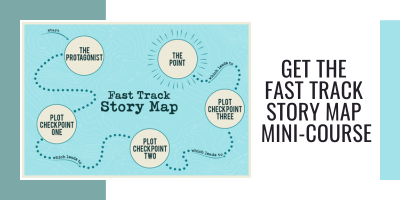 Years ago, I had an interview with a producer who was pitching a craft challenge reality TV show. I had designed knitting patterns for books and magazines for a number of years, so it seemed like a good fit for me. However, I was surprised to find that the interview questions were not focused on my skills or methods, but on personal characteristics like:
Years ago, I had an interview with a producer who was pitching a craft challenge reality TV show. I had designed knitting patterns for books and magazines for a number of years, so it seemed like a good fit for me. However, I was surprised to find that the interview questions were not focused on my skills or methods, but on personal characteristics like:"Do you go crazy if you don't win a challenge?"
"Are you the bossy one in group settings?"
"If supplies are limited, do you try to grab everything for your own project?"
It quickly became apparent to me that the producer was not looking for skilled or experienced crafters, but individuals who could cause drama with their craft-triggered personal issues. Of course, they were. It was a reality TV show.
Now, it might be easy to just chalk this up to the extreme sensationalism used to sell TV programming, but there is actually a psychological basis for creating this kind of drama with regard to story.
HUMANS ARE WIRED TO LEARN BEST THROUGH ADVERSITY
Few people tune in to watch shows about happy, healthy, well-adjusted folks just doing their thing. Heck, Bob Ross, the beloved painter known for his wooly hair and his meditative, soft-spoken demeanor, claimed he was "the guy who makes you scrub the latrine, the guy who makes you make your bed, the guy who screams at you for being late to work", during his time in the Air Force. It isn't hard to imagine Bob fighting some internal demons with his 'happy little trees'. And really, isn't the calm, meditative, remedy-for-stress that is landscape painting exactly the reason viewers showed up for Ross's PBS show for so many years in the first place?
In any story, a protagonist who simply overcomes the challenges of the plot without some sort of internal struggle is certain to make for a one-dimensional story. While the plot might be exciting and the premise thrilling, if they do not trigger an internal flaw that the protagonist must overcome to successfully battle those external challenges, your story will be like a roller coaster ride: thrilling in the moment, but safe, mechanical, and ultimately forgettable.
START WITH THE FLAW
Many writers begin with the plot: What if a character suddenly finds themselves in __________ crazy scenario?
And this is fine! However, before you get too far into plotting, ask yourself these questions:
- What sort of character needs this particular plot to become a more actualized version of themself by the end?
- How does the plot help your character to learn and grow?
- Where do they start the story, internally, and how does experiencing the plot and coming face-to-face with their beginning internal flaw, help them grow and learn by the end?
Just like in reality TV, a good story isn't just about an exciting plot or the skill of the performers. It's about that internal struggle that gives depth to characters, because a flawless protagonist just won't stick in your reader's memory, or trigger their hearts. So, start with the flaw!

Love this content?
Subscribe to The Story Guide Dispatch for more!
Find Story Guide




















0 Comments